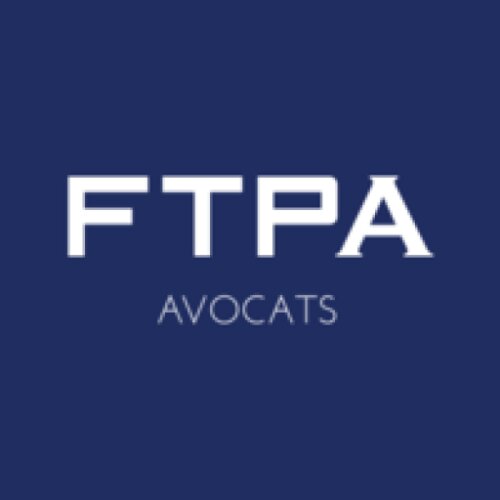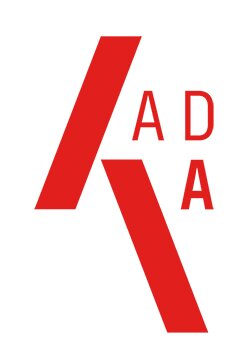Best Tax Increment Financing Lawyers in France
Share your needs with us, get contacted by law firms.
Free. Takes 2 min.
Or refine your search by selecting a city:
List of the best lawyers in France
About Tax Increment Financing Law in France
Tax Increment Financing (TIF) in France refers to a financial tool that municipalities and other local authorities use to promote economic development and urban renewal. This mechanism allows local governments to capture future tax revenue increases generated by infrastructure improvements within a defined area. These funds are typically used to finance public projects that stimulate economic development, such as improving utilities, developing public spaces, or other community development initiatives. In France, TIF is comparatively less common than in countries like the United States, but local adaptations and related mechanisms can be relevant for city planning and public finance strategies.
Why You May Need a Lawyer
Engaging with Tax Increment Financing can be complex, and there are several situations where legal assistance might be necessary:
- Understanding Legal Frameworks: A lawyer can help interpret relevant laws and regulations governing TIF in your region.
- Structuring Agreements: Legal assistance is important when drafting contracts or agreements between public authorities and private developers.
- Compliance Issues: Ensuring compliance with local, regional, and national regulations can require legal guidance.
- Disputes and Negotiations: In case of disagreements or contractual disputes, a lawyer can represent your interests and facilitate negotiations.
- Project Financing: Legal advice can be crucial in structuring the financing aspects of TIF projects, ensuring transparency, and safeguarding interests.
Local Laws Overview
The legal aspects of Tax Increment Financing in France are guided by a mix of national laws and regional policies. While not specifically termed as "Tax Increment Financing," similar mechanisms exist within local government funding statutes and economic development strategies:
- Urban Planning Codes: These local codes can affect how TIF-related projects are approved and implemented.
- Local Government Taxation Authority: Understanding local government powers in terms of taxation and use of future tax revenues is crucial.
- Public-Private Partnerships (PPP): Legal frameworks enabling collaborations between local governments and private entities may involve TIF-like financing.
- Environmental Regulations: Compliance with environmental protection laws is necessary for development projects funded by TIF.
Frequently Asked Questions
1. What is the primary purpose of Tax Increment Financing?
The primary purpose of TIF is to stimulate economic development in underdeveloped or blighted areas by using future increments in property tax revenues to fund public infrastructure improvements that lead to increased private investment and property values.
2. Is Tax Increment Financing commonly used in France?
In France, TIF is not as prevalent as in some other countries. However, similar mechanisms are used within the broader scope of local government finance strategies and economic development initiatives.
3. How are the funds collected through TIF used?
Funds collected through TIF are typically used for public improvements such as roads, utilities, parks, and other infrastructure that promote economic development in the designated area.
4. Who benefits from TIF projects?
TIF projects benefit local communities through improved infrastructure, increased property values, job creation, and an expanded tax base. Developers may benefit from a more attractive investment climate.
5. How does TIF impact local taxpayers?
Ideally, TIF should not increase taxes for local residents, as the funding relies on future tax revenues generated from increased property values. However, it's essential to manage projects efficiently to avoid potential financial risks.
6. What are potential risks associated with TIF?
Risks include underperformance of projected tax revenue increases, mismanagement of funds, and possible displacement of local residents due to rising property values.
7. How can I get involved in a TIF project?
Engagement typically involves attending public meetings, reviewing project proposals, and participating in local government discussions concerning proposed TIF districts.
8. Can TIF be used for any type of project?
No, TIF is usually intended for projects that promote public benefit and economic development, and they must comply with existing legal and zoning regulations.
9. Who oversees the implementation of TIF projects?
Local government authorities usually oversee TIF projects, ensuring alignment with community goals and adherence to regulatory frameworks.
10. How can disputes related to TIF be resolved?
Disputes can typically be resolved through negotiation, mediation, or, if necessary, legal adjudication, often requiring the expertise of legal professionals.
Additional Resources
For more information on Tax Increment Financing and related policies, you may consider reaching out to the following resources:
- Local Municipalities and City Councils: For specific local practices and project details.
- Chambers of Commerce: Can provide insights into development initiatives related to TIF.
- Governmental Regulatory Bodies: Organizations like the French Ministry for the Ecological Transition may offer relevant guidance on urban development laws and regulations.
- Legal Associations: Such as the French Bar Association, which may provide referrals to specialized legal practitioners.
Next Steps
If you need legal assistance with a Tax Increment Financing issue in France, consider taking the following steps:
- Research: Learn more about the specific TIF issue you are facing, including understanding the local context and regulatory environment.
- Consult Legal Professionals: Reach out to a lawyer who specializes in municipal finance, economic development, or urban planning law.
- Documentation: Gather all relevant documents and information that will help your legal advisor understand your situation better.
- Engagement: Attend public meetings and engage with local government officials to gain a clearer picture of how TIF is being implemented in your area.
- Seek Advice from Experts: Utilize the resources mentioned above or legal associations for referrals to qualified professionals.
Lawzana helps you find the best lawyers and law firms in France through a curated and pre-screened list of qualified legal professionals. Our platform offers rankings and detailed profiles of attorneys and law firms, allowing you to compare based on practice areas, including Tax Increment Financing, experience, and client feedback.
Each profile includes a description of the firm's areas of practice, client reviews, team members and partners, year of establishment, spoken languages, office locations, contact information, social media presence, and any published articles or resources. Most firms on our platform speak English and are experienced in both local and international legal matters.
Get a quote from top-rated law firms in France — quickly, securely, and without unnecessary hassle.
Disclaimer:
The information provided on this page is for general informational purposes only and does not constitute legal advice. While we strive to ensure the accuracy and relevance of the content, legal information may change over time, and interpretations of the law can vary. You should always consult with a qualified legal professional for advice specific to your situation.
We disclaim all liability for actions taken or not taken based on the content of this page. If you believe any information is incorrect or outdated, please contact us, and we will review and update it where appropriate.
Browse tax increment financing law firms by city in France
Refine your search by selecting a city.
















